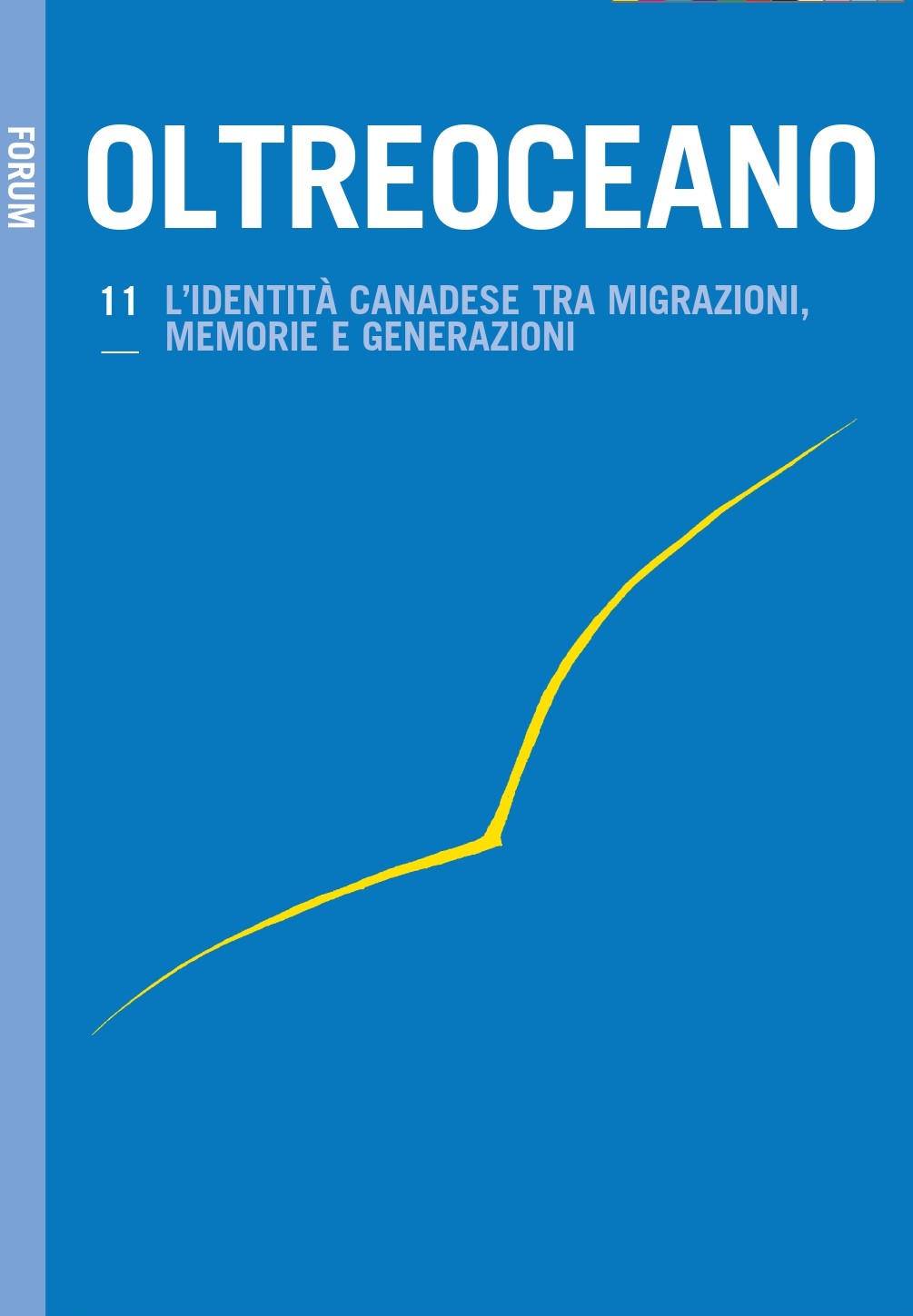No. 11 (2016): Canadian Identities, Migrations, Memories and Generations

In this volume we examine how Canadian identity is still very much a work in progress. Indeed, a complex web of cultural elements continues to trigger movements of integration and repulsion, of fusion and juxtaposition, which are always partial and negotiable. Literature plays a key social role because symbolic discourse it offers everyone ways to solutions and suggestions to take part in the creation of a national identity. As products of cultural transnationalism or transculturalism, migrant writers provide the mainstream Canadian society with alternative cultures, which are capable of tearing down nationalisms and going beyond limited local realities. This emerges quite clearly from the contributions contained in the volume. They indeed the interdisciplinary connections among topics related to intergenerational relationships, journeys/migration, aging and memory, quality of life and institutions, and creativity as a marker of personal and national Canadian identity. In contrast to the Canadian government’s multicultural model and Quebec’s idea of metissage, a Hispano-Canadian project puts forward the idea of building an archetypal world whose epistemological nature is based on considering what counters reality as a model. A final section is dedicated to Friulian emigration through the analysis of works by Friulian and Julian-Dalmatian writers.












